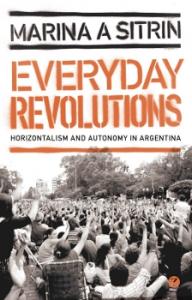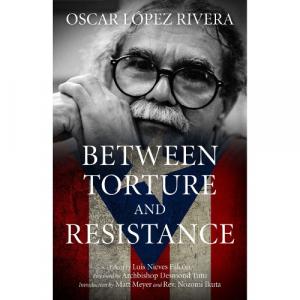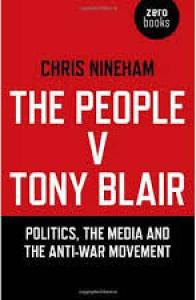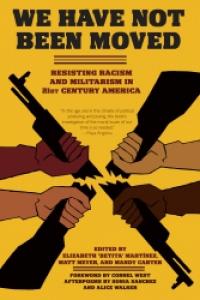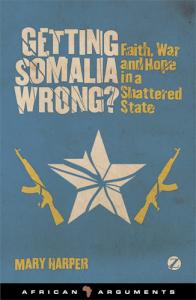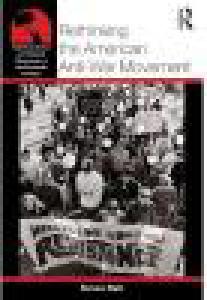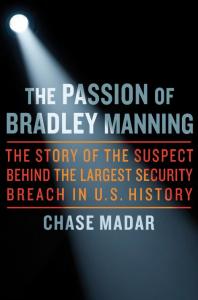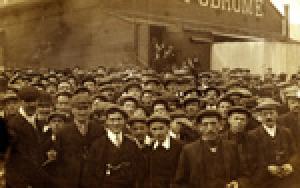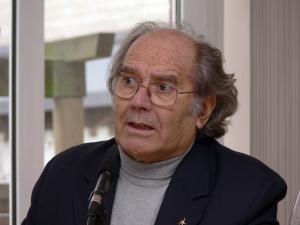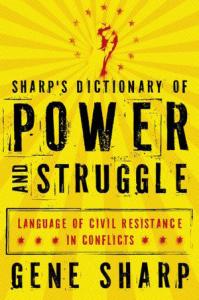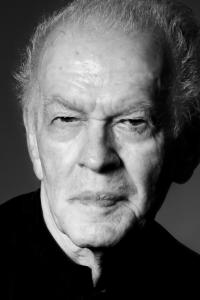This book explores the revolutionary politics and activism that sprang up in Argentina in December 2001. With the state collapsing in the midst of a severe economic crisis, sections of the population responded by organising demonstrations and neighbourhood assemblies.
In the months and years following this societal rupture, workers began to occupy their workplaces and…
Sinclair, Ian
Sinclair, Ian
Ian Sinclair
Puerto Rican nationalist Oscar Lopez Rivera has the dubious distinction of being one of the longest-serving political prisoners in the world.
Having served in the US army in Vietnam, Rivera returned to Chicago and started working to improve living conditions for Puerto Ricans in the city.
Radicalised during this period, he became a forceful advocate for Puerto Rican independence from the United States. Facing police repression, Rivera went underground for several years. In 1981…
A central figure in Stop the War Coalition (STWC) since its founding in 2001, Chris Nineham has written a short, timely and very readable book exploring the relationship between the anti-war movement and the Blair government in the run-up to the 2003 invasion of Iraq.
Nineham provides a concise summary of the discussions within the Bush administration after 9/11 and an interesting analysis of the surprisingly positive media coverage of the anti-war protests in the UK circa 15 February…
David Wearing, co-editor, New Left Project
As the Italian Marxist Antonio Gramsci observed, power cannot rule by force alone. Hegemony requires that a sufficient portion of the population view the status quo as fundamentally legitimate, or at least unalterable. Noam Chomsky and Ed Herman described how the corporate media function in a way that manufactures this popular consent, by framing discourse, promoting certain perspectives…
Taking its cue from Martin Luther King’s famous 1967 speech denouncing the war in Vietnam, We Have Not Been Moved focuses on the resistance to both racism and militarism in the United States.
The three editors — all experienced activists — have collated 90 contributions looking at the connections and cleavages between the two issues, including the over-representation of ethnic minorities fighting in the armed forces, government money funding aggressive wars overseas rather than…
The dominant view of Somalia today is of a failed state riven by war, terrorism, piracy, poverty and hunger.
Mary Harper, a BBC journalist who has been reporting from Somalia since 1991, argues these images and labels act as a barrier to a more nuanced and deeper understanding of the country.
Citing numerous Somali voices, Harper maintains that continual conflict and crisis have forced Somalis to invent surprisingly workable and resilient alternative political and economic…
Simon Hall, senior lecturer in American History at the University of Leeds, has written an impressively researched, concise history of the anti-Vietnam War movement. With extensive endnotes and a wide-ranging bibliography, this is a superb introduction for students of the period and those interested in anti-war protest more broadly.
Incredibly, the 4,000 college students who demonstrated in Washington DC in 1962 in support of a conciliatory foreign policy made up, at that point,…
Born in a small Oklahoma town in 1987, computer whizz-kid Bradley Manning enlisted in the US army in 2007.
Two years later, he was posted to Iraq where he worked as an intelligence analyst in a remote forward operating base close to Baghdad.
Increasingly concerned about US actions in Iraq and unhappy about his role in them, Manning allegedly sent hundreds of thousands of documents to the organisation Wikileaks.
The documents published by Wikileaks in 2010 included the…
One hundred years ago, a group of miners from South Wales published a radical economic and political pamphlet which ‘received a blaze of publication’ in The Times and other national newspapers. It was the topic of a special house of commons debate and ‘became a household word’ in the coalfields of Britain, according to miners’ historian R Page Arnot.
As the pre-First World War…
Born in Buenos Aires in 1931, Adolfo Pérez Esquivel played a key role in the nonviolent resistance to the South American military dictatorships of the 1970s and 1980s. In 1977, he was imprisoned and tortured by the Argentinian military junta. Three years later he was awarded the Nobel Peace Prize. Ian Sinclair interviewed him, with Beverly Keene interpreting, when he visited London in April.
PN: During the 1970s and early 1980s, up to 30,000 Argentinians died in the so-called ‘…
A big book in every sense, The Death of Others looks at the fate of civilians in American wars since 1945 – focussing on the Korean War, Vietnam, Iraq and Afghanistan.
John Tirman, executive director of the Center for International Studies at MIT and the person who commissioned the 2006 Lancet study on deaths in Iraq, argues that the American public is indifferent to the suffering of civilians in the wars their tax dollars pay for – just as the US military has little concern for…
As the BBC Newsnight economics editor, Paul Mason has become a familiar face on television over the last few years, reporting on the protest movements, revolutions and revolts that have been “kicking off” across the globe since 2009.
Mason is also a keen blogger, and it is these (albeit now cleaned up) postings that form the backbone of this electrifying new book.
The essence of his argument is that “we’re in the middle of a revolution caused by the near collapse of free-market…
Gene Sharp. PHOTO: Conor Doherty
Arguably the best-known advocate of nonviolence working today, through books such as 1993’s 'From Dictatorship to Democracy', Gene Sharp has influenced popular revolutions and revolts across the globe. He was interviewed by Ian Sinclair for PN.
Peace News: When and why did you first get interested in the serious study of nonviolent struggle?
Gene Sharp: Well, the world was in a bit of a mess [after the Second World War], and I began to learn…
A common argument in the leadup to the 2003 invasion of Iraq was that Saddam Hussein could only be toppled by a foreign invasion, that it was impossible for Iraqis themselves to remove such a brutal dictator.
An insightful and stirring look at the life and work of Gene Sharp, How To Start A Revolution demolishes this argument. Countering the widely accepted view of nonviolence as hopelessly naïve, the 84-year-old professor of political science has spent his life documenting the…


